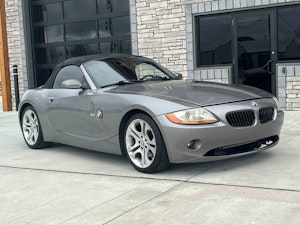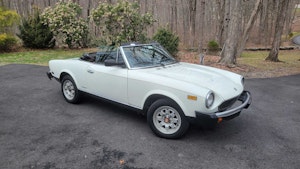Media | Articles
All Volvos will be restricted to 112 mph by 2021, but Polestars won’t
Following on the heels of a European Parliament committee vote to mandate the use of electronic speed limiters in new cars within three years, Volvo Cars has announced that starting with the 2021 model year, all of its cars will be limited to a top speed of 112 mph (180 kph).
The speed limiters are part of Volvo’s “Vision 2020,” the goal of which is to have not a single person killed or seriously injured in a new Volvo by the year 2020. A Volvo engineer, Nil Bohlin, invented the three-point safety harness and safety has long been part of Volvo’s brand identity.
While safety technology has gone a long way towards reducing traffic deaths and injuries, Volvo admits that technology alone won’t reduce those numbers to zero so they are going to start focusing on driver behavior.
“We want to start a conversation about whether car makers have the right, or maybe even an obligation, to install technology in cars that changes their drivers behaviour, to tackle things like speeding, intoxication or distraction,” says Håkan Samuelsson, CEO and president of the Volvo Car Group. “We don’t have a firm answer to this question, but believe we should take leadership in the discussion and be a pioneer.”
The Geely-owned Swedish car maker is also looking into limiting speeds around schools or hospitals by combining “smart speed control” with GPS-based geofencing.
Marketplace
Buy and sell classics with confidence
While passenger vehicles today are much safer than those of just a generation ago, Volvo has identified three “gaps toward zero”—speeding, intoxicated driving, and distracted driving. Volvo will be announcing efforts to address distraction and driving under the influence of drugs or alcohol at a safety focused event in Gothenburg later this month.
Apparently, the problem with speeding is physics. While seat belts, air bags, and well-designed superstructures go a long way towards saving lives and preventing serious injuries, above certain speeds they cannot cope with the high energy of a collision. Volvo cites the U.S. National Highways Traffic Safety Administration statistics that show that approximately one quarter of all traffic road deaths in the United States are attributable to excessive speed.
Volvo can’t do anything to change the laws of physics (notwithstanding hype from makers of sports cars) so it is instead concentrating on driver behavior.
Jan Ivarsson, a company director and Senior Technical Advisor for safety, provided the company’s rationale.
“As humans, we all understand the dangers with snakes, spiders, and heights. With speeds, not so much,” Ivarsson says. “People often drive too fast in a given traffic situation and have poor speed adaption (sic) in relation to that traffic situation and their own capabilities as a driver. We need to support better behavior and help people realize and understand that speeding is dangerous.”
This is an interesting position for Volvo to take, considering that the automaker and its Geely bosses have positioned the Volvo EV sub-brand, Polestar, as a maker of “performance” battery electrics. Only last week, Polestar announced the 400-horsepower Polestar 2.
We confirmed with Polestar that Volvo’s 112-mph governor will not apply to Polestar products.










